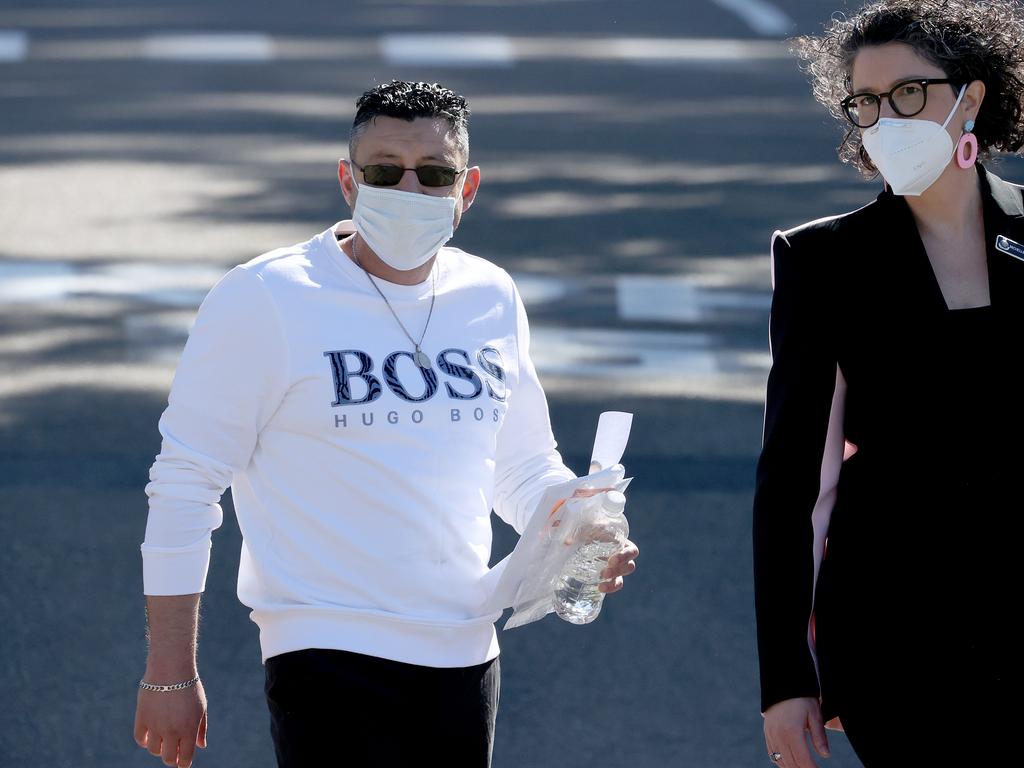
Baria Skaf wanted her “boys” to come home. In a 2002 interview with journalist Candace Sutton, the Skaf matriarch expressed doubt about her sons’ guilt. Sutton reported that Baria Skaf had Muslim and Christian friends at the time. But court proceedings and media interviews revealed that members of the Skaf gang used violent racism against the girls they brutalised. They called one victim an “Aussie pig”. They threatened to rape a girl “Leb style”. Despite being born in Australia, the rapists identified as Lebanese.
An 18-year-old girl was reading a book of English literature on the train home one afternoon when she was surrounded by a group of males. According to Michael Finnane, the judge who would later preside over the rape trials, the youths were led by Mohammed Skaf. They assaulted the teenager, forced her off the train and into public toilets where they assaulted her again. One of the men phoned another group, which arrived by car. The teenage girl was taken to the Bankstown Trotting Club and raped again. A second car arrived with more men who had been told by the rapists about the victim, whom they viciously vilified by calling her “a slut”. In the second car, the girl was brutalised three more times. The gang tortured the teenager for six hours. In a 2018 article for The Australian Financial Review, Finnane recounted that, in all, 14 males brutally violated her more than 40 times.
It is difficult to imagine the trauma, both psychological and physical, she suffered or how she managed to survive the harrowing legal process to bring the rapists to justice. Australians owe her a debt of gratitude for stopping the gang preying upon other girls. Justice was served, of a sort. But in Australia, the sentence of life imprisonment is usually reserved for murder. As such, violent sexual offenders rarely spend their lives in prison. Some reoffend after release. One of the most infamous was Adrian Bayley, who had served 11 years in jail for repeated sexual offences including rape and was paroled in 2010 before raping and murdering Jill Meagher in 2012.
Other victims brutalised by the Skaf gang included a 16-year-old girl who knew Mohammed Skaf from school. She thought they were friends. He took her to a park where his brother, Bilal, lay in wait with a gang of men. They held her down as Bilal raped her. They looked on, laughing. A second male followed Bilal. He held a gun to the teenager’s head, raped her and kicked her in the stomach in a final act of degradation. The Age reported that when Acting Justice Jane Mathews sentenced Bilal for the rape, he smiled.
The Skaf brothers identify as Lebanese Muslim. Three members of the gang raped another two 16-year-old girls repeatedly in an ordeal that lasted five hours. They dragged the girls by the neck to rape them in a park, and told one: “You deserve it because you are Australian.” One of the victims said outside court that in the course of securing a plea bargain deal, ethnic references had been removed from her statement. The implication is the public do not know to what degree racial hatred might have inspired the rapists, or provided them with a sense of justification for enacting cruel and degrading crimes on girls from Anglo-European descent.
Some media pundits, academics and Islamic community leaders claimed it was Lebanese Muslims who were the victims of racism. They criticised then Labor premier Bob Carr for supporting Finnane, who wanted to name the perpetrators, but could not because they were juvenile offenders. Carr believed they did not deserve such protection. Keysar Trad, of the Lebanese Muslim Association, said naming the rapists would cause their families to suffer. In an interview with the ABC’s 7.30 Report, Trad denied the victims were targeted because of their ethnicity. Rather, the rapists were motivated primarily by “gratification”.
When one racial or religious group targets another for violence and uses racial hatred against victims, it is commonly understood as a hate crime. The fact some racists derive sexual satisfaction from punishing girls or women from another ethnic group does not alter the fact. There is evidence to suggest the ethnic bigotry of the Skaf gang might not have been isolated to the girls they brutalised. On a phone seized by police, they found a message by ringleader Bilal Skaf: “When you are feeling down … bash a Christian or Catholic.” The Australian Associated Press cited a pre-release report compiled by NSW Corrective Services in 2017 that suggested Mohammed Skaf blamed his cultural upbringing for his behaviour towards women, and showed no empathy for his victims.
In his book, The Pursuit of Justice, Finnane revealed that in court, associates of the rapists showed gross disrespect for the victims: “Some people in the public gallery, including the mother of Bilal Skaf, were hurling abuse at the three victims who had turned up for the sentencing.” It was so serious that Finnane was compelled to warn the menacing group to desist, or they would be arrested. The Daily Mail reported that a female relative abused Crown prosecutor Margaret Cunneen, calling her “sharmoota”, meaning whore in Arabic.
Australia does not have the death penalty, but our justice system has repeatedly failed to safeguard law-abiding citizens from dangerous criminals. Releasing violent offenders who feign remorse condemns innocent citizens to suffer. In Australia, the death penalty is by default. The paroled liar’s next unwitting victim is put on death row.




The release from jail of convicted rapist Mohammed Skaf raises questions about whether Australian law is equipped to safeguard society from violent sexual offenders. Skaf was part of a gang whose members preyed on teenage girls in 2000. It was a series of brutal attacks that became known as the Sydney gang rapes. The gang members used sexual and racial hatred in the commission of their crimes. They expressed little or no remorse. Yet most have been released from jail.